iGaming Payment Solutions: The 2026 Guide for Operators
In the fast-evolving iGaming industry, speed, security, and global access are paramount. As we move into 2026, cryptocurrency is no longer a "future trend" or a niche experiment. It has become a core, essential component of high-performing igaming payment solutions. For operators, crypto-powered gateways are no longer just an alternative. They are a powerful tool for solving the core problems that traditional banking cannot, giving operators a definitive competitive edge in player acquisition, retention, and operational efficiency.
The iGaming Market in 2026: A Multi-Billion Dollar Digital Juggernaut
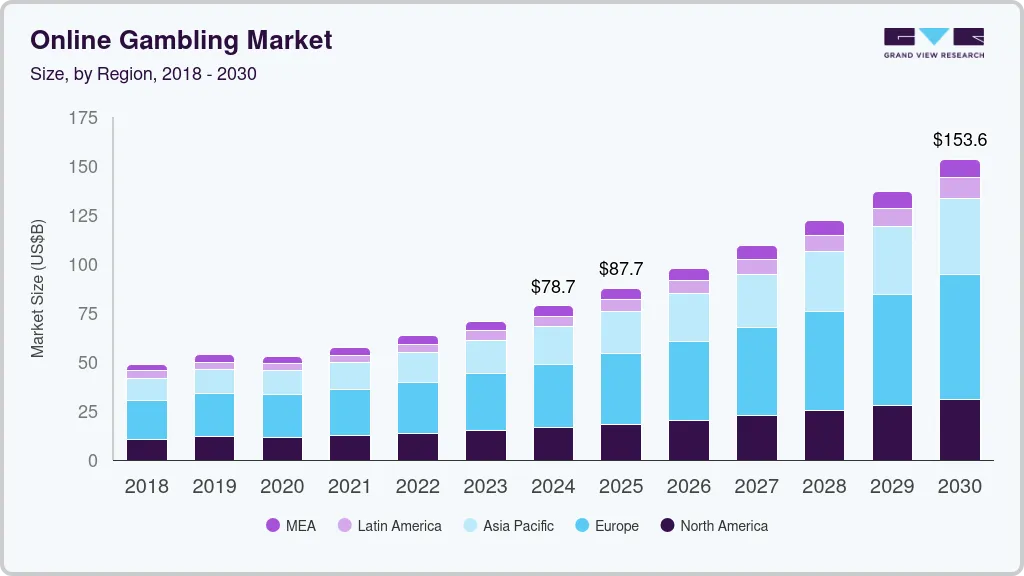
This section outlines the massive projected growth of the global iGaming and blockchain gaming markets, establishing the scale of the opportunity.
The scale of the iGaming industry is staggering. The global market is projected to surge from $103 billion in 2025 to **$169 billion by 2030**. Other projections estimate the market, valued at $97 billion in 2024, will reach nearly $133 billion by 2029.
This growth is supercharged by key drivers. Mobile gaming, for instance, is expected to account for more than 60% of total iGaming revenue in 2025. More than just a related field, the closely-watched blockchain gaming market is projected to hit $301.53 billion by 2030, driven by a massive 69.4% compound annual growth rate.
As Ron Mendelson of iGamingNews puts it, "As the iGaming sector enters 2025, it remains one of the most dynamic and rapidly evolving industries in the digital economy."
This massive, fast-growing digital industry requires payment infrastructure that is equally fast, global, and scalable—a demand that traditional finance has struggled to meet.
The Core Challenge: Why Traditional Banking Fails iGaming Operators
iGaming operators face unique financial challenges, as traditional banks often label the industry "too risky," leading to delays, rejections, and instability.
Innovative businesses, especially in high-growth industries like iGaming, often find themselves stuck in bureaucratic limbo. Many traditional financial institutions categorize iGaming operators as "too risky," a label that leads to practical, costly problems: sudden account rejections, frustrating payment delays, and arbitrary restrictions on financial flows.
This isn't just a feeling. It's a data-backed reality. In 2025, financial institutions and fintech platforms saw a +90% year-over-year increase in attempted payment fraud rates, making banks extremely cautious.
Konstantin Yerokhin, CEO of Cryptobanco, explains the problem perfectly: "Innovative businesses, especially in fast-growing industries like iGaming, face rejections, delays, and restrictions. Banks consider them 'too risky,' and many crypto services consider them 'too unreliable.'"
This core challenge highlights the critical need for specialized, dedicated iGaming payment providers 1 built specifically to understand and serve the industry.
What is a Cryptocurrency Payment Gateway for iGaming?
A crypto payment gateway for iGaming is a technology service that enables operators to securely accept, process, and pay out digital currency transactions.
These payment processing solutions serve as essential bridges between blockchain transactions and gaming platforms, processing deposits and withdrawals with enhanced efficiency. They are the core technology that enables a modern, crypto-based igaming payment solution, allowing operators to serve a global player base without the complexities of traditional currency conversion.
This is no longer a niche market. The total global cryptocurrency market size reached $2.49 Trillion in 2024, providing a massive pool of liquidity and users.
As venture capitalist Marc Kenigsberg said, "Blockchain is the tech. Bitcoin is merely the first mainstream manifestation of its potential." For iGaming, the gateway is the manifestation of that potential.
The Player Demand Imperative: How Crypto Defines the 2026 User Experience
Modern iGaming players now demand the superior user experience that cryptocurrency payments provide, particularly in speed, value, and access.
Operators adopt new technology to acquire and retain players. In 2026, players are demanding crypto. The user experience benefits are so significant that they have become a primary B2B justification for adoption.
- 1. Unmatched Speed: Players are no longer willing to wait. While traditional casino withdrawal times average 1-5 business days, crypto casino withdrawals average just 10 minutes. This shift from days to minutes is arguably the most powerful player retention tool available today.
- 2. Better Bonuses: Crypto's low overhead allows for more generous and creative bonuses, a trend players refer to as "Bonus Hunting 2.0." This attracts high-value players who are actively seeking better rewards.
- 3. Global Access: Smart players are leveraging crypto for "Geographic Arbitrage"—using digital currencies to access platforms and odds from different jurisdictions that would otherwise be unavailable.
It's clear that player expectations have changed. Statistics show that 56% of players consider fast payouts a critical factor in choosing an iGaming platform.
As the team at Affise notes, "Faster withdrawals also mean players can enjoy their winnings without unnecessary delays, adding to the overall satisfaction of using iGaming platforms."
Key Benefits of Crypto Payment Solutions for Operators
For operators, integrating crypto payment gateways translates directly into lower costs, faster global payouts, improved security, and access to new markets.
Instant Global Payouts & Reduced Support Overhead
Operators can send and receive funds globally in minutes, drastically cutting down on customer support inquiries related to payment status.
Players receive their winnings within minutes rather than days, as cryptocurrency bypasses traditional banking intermediaries. This rapid settlement, often in 10 minutes or less, creates a superior gaming experience. A report by Juniper Research found that users who experience payment delays are 35% less likely to return to a platform. For the operator, this speed translates to a dramatic reduction in "Where is my money?" support tickets and a significant boost in player loyalty.
Lower Transaction Fees & Improved Margins
Crypto transaction fees are typically far lower than traditional credit card processing, directly improving an operator's profitability.
Transaction fees remain minimal—often below 1%—compared to credit card processing fees that can exceed 3%. The World Bank reported a global average fee of 6.4% on a $200 traditional transfer. By contrast, many cryptocurrency transfers incur nominal fees of a few cents. These cost savings benefit both operators and players through improved odds and bonuses.
Access to New & Emerging Markets (e.g., Brazil)
Crypto payments allow operators to instantly enter new and emerging markets, bypassing the complex and slow process of setting up local banking.
The decentralized structure of cryptocurrencies allows crypto casino operators to accept players from any location without currency exchange barriers. This is a massive advantage in new jurisdictions experiencing a "regulatory gold rush," such as the Brazilian iGaming market, which officially legalized operations on January 1, 2025.
Crypto allows operators to enter these markets immediately. This is especially true in mobile-first regions like Africa, which saw the highest P2P crypto trading volume growth (~300% YoY) with 95% of users on mobile.
Enhanced Security & Fraud Reduction
Blockchain technology's unalterable, public ledger provides exceptional security and virtually eliminates the costly problem of chargeback fraud.
Blockchain technology strengthens transaction security by creating permanent, unalterable records of all payments. This immutability virtually eliminates the costly problem of chargeback fraud, a common issue with traditional credit card payments.
This is a critical defense, as the value of payment fraud is set to soar to more than $40 billion by 2027. According to a 2025 report from Sumsub, "In Q1 2024, 73% of all detected attacks in the iGaming sector were linked to selfie mismatches, a key indicator of fake players' identities," highlighting the intense fraud pressure operators face.
Handling Operator Objections: Volatility, Regulation, and Integration
Specialized gateways are designed to solve the three main operator concerns—volatility (via stablecoins), regulation (via compliance tools), and technical integration.
The Solution to Volatility: Why Stablecoins are the New Standard
Price volatility is neutralized by the widespread adoption of stablecoins, which offer the benefits of crypto with the stability of fiat.
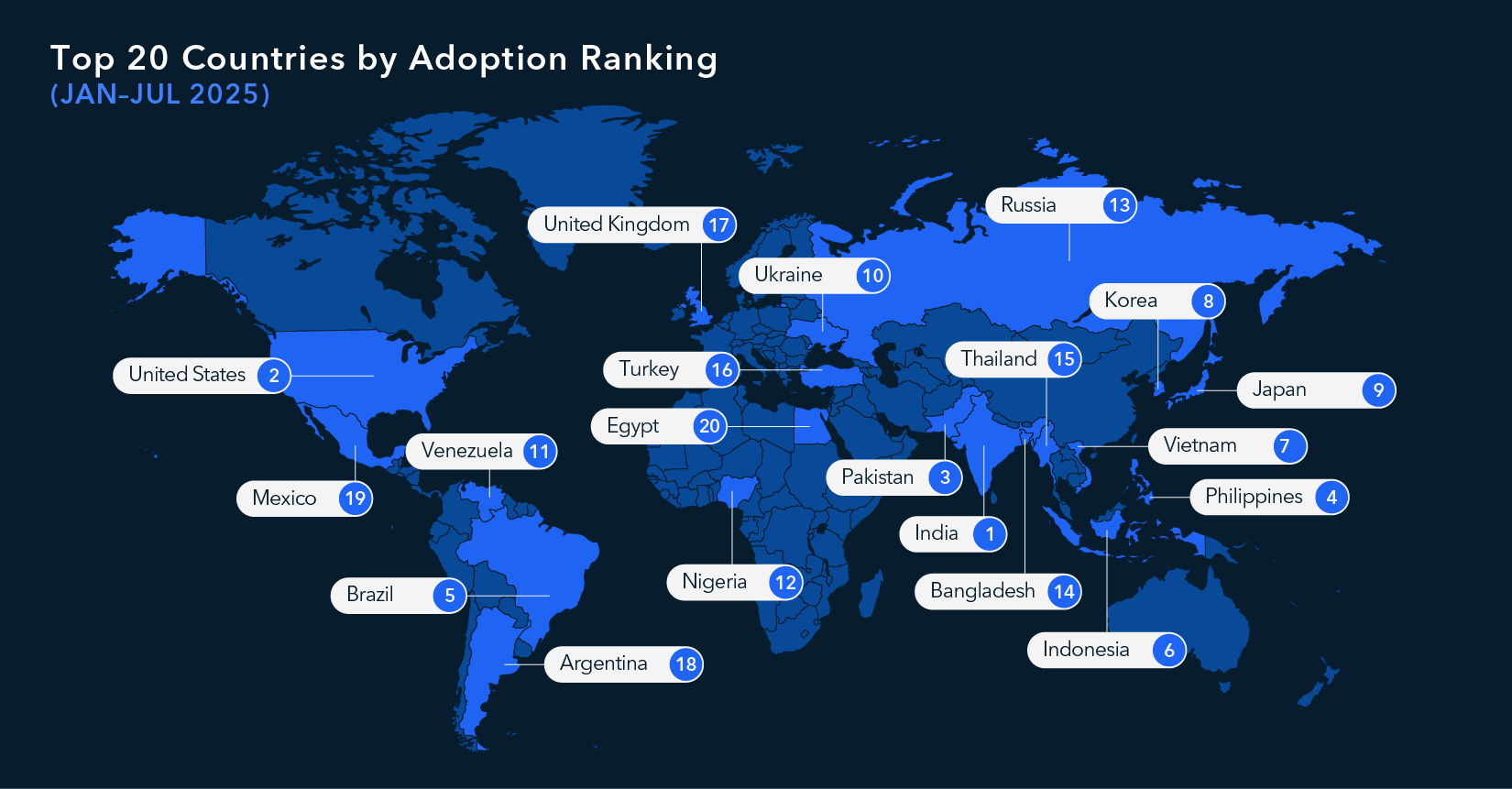
Price volatility remains a primary concern for many operators. However, this objection has been effectively solved by the new market standard: stablecoins. In 2025, the use of stablecoins (like USDT or USDC) grew by an explosive 337%.
These assets are now a dominant force. Stablecoins now comprise 30% of all on-chain crypto transaction volume, recording their highest annual volume to date in August 2025. As the advisory firm Fast Offshore noted, "Stablecoins... are poised to become increasingly popular in the iGaming sector... cryptocurrencies pegged to stable assets like the U.S. dollar." Offering seamless, automatic conversion to and from stablecoins is now a key differentiator for the best cryptocurrency payment gateways.
The New Regulatory Landscape: Regulation as a Growth Catalyst
Regulation, once seen as a barrier, is now viewed as a catalyst for growth that builds investor and player trust.
Regulatory requirements vary significantly across jurisdictions. However, the narrative has shifted. According to a 2026 iGaming Trends report, regulation is now increasingly seen as a "catalyst for industry growth rather than a constraint."
Survey data confirms this shift. Nearly half of all iGaming industry players (rating 7 or above) view the new regulatory environment positively, with the average rating increasing to 6.36 in 2025 from 6.06 a year earlier.
Ivan Montik, Founder of SOFTSWISS, stated: "Regulation is not always the enemy of growth. When done right, it becomes the foundation for it... iGaming is now entering its own 'GENIUS moment.'" This is why partnering with a provider that understands and provides tools for igaming operators compliance is a core strategic advantage.
The Technical Hurdle: Choosing a Partner for Integration
While technical integration can seem complex, modern gateways are designed as integration services, not just software, to ensure a smooth rollout.
Technical implementation barriers exist, particularly for smaller operators. Integration costs and staff training requirements can be a concern. However, as BASYS Processing noted in a 2025 analysis, "seamless payment integrations have evolved from a 'nice to have' to an absolute necessity for software platforms." The key is to move away from thinking of it as just software and instead to evaluate partners based on their crypto payment gateway integration services.
A Practical Guide: Integrating a Crypto Gateway with Your iGaming Platform
Modern gateways offer flexible integration options, including REST APIs and white-label solutions, to connect seamlessly with your existing iGaming software provider.
Most modern crypto payment processors provide robust REST APIs and software development kits (SDKs) for smooth integration with current payment infrastructure. This allows operators to implement these solutions alongside traditional payment methods. The best crypto payment gateway integration services also offer white-label solutions for a fully branded, out-of-the-box cashier.
As BASYS Processing notes, "For software partners, the ability to deliver seamless payment integrations can make all the difference. They enhance efficiency, improve user satisfaction and add significant value to your platform."
Crucially, modern self-hosted solutions like PayRam are designed for straightforward implementation via a streamlined, UI-based setup for quick deployment. The goal is a seamless connection to your igaming software provider or Player Account Management (PAM) system to instantly credit accounts and process payouts.
The Future: 2026 Trends for iGaming Payment Providers
Future trends include deeper blockchain integration for loyalty, AI-driven compliance, and the continued merging of traditional iGaming with the blockchain gaming market.
Industry analysts project sustained growth in crypto payment integration. While advancements in layer-2 solutions promise faster speeds, two key trends stand out for 2026:
- AI-Driven Compliance: The use of AI within payment flows to automate transaction monitoring and enhance fraud detection, making igaming operators compliance more efficient.
- Market Convergence: The continued merging of the traditional iGaming industry with the massive blockchain gaming market, which is projected to grow at an impressive CAGR of 62.59% from 2025 to 2033.
Pauline Lifshits, CEO of NOWPayments, captured the sentiment perfectly: "Offering crypto deposits is no longer an optional feature for igaming operators – it's a competitive necessity."
Frequently Asked Questions (FAQs) for iGaming Operators
This section answers common, specific questions that iGaming operators have about cryptocurrency payment gateways, KYC, and choosing a provider.
What is the main processing fee for PayRam?
PayRam offers a 0% core processing fee. You are not taxed on your transaction revenue.
How does PayRam make money if processing is free?
PayRam operates on a value-based model. We charge optional service fees for advanced, high-value services like our integrated OnRamp and OffRamp fiat gateways or other treasury-management tools. You only pay for the specific services you use.
What is an OnRamp / OffRamp service?
An OnRamp service allows users to convert traditional fiat money (like USD or EUR) into cryptocurrency. An OffRamp service allows you to convert cryptocurrency back into fiat money and withdraw to a bank account. PayRam offers these as integrated, optional services.
Is a crypto gateway difficult to install?
Not anymore. While older solutions were complex, PayRam is designed with a streamlined, UI-based setup that allows you to deploy on your own server in as little as 10 minutes.
What are the main benefits of using stablecoins for iGaming?
Stablecoins (like USDT or USDC) solve the problem of volatility. They are pegged to a stable asset, like the US dollar, so you can accept crypto payments without worrying about the price of Bitcoin or Ethereum fluctuating.
How does a crypto gateway stop chargeback fraud?
Blockchain transactions are irreversible. Once a payment is confirmed on the network, it cannot be recalled by the sender. This permanently eliminates the risk of fraudulent chargebacks, which is a major cost for operators using credit cards.
Why do players prefer crypto payments?
The primary reason is speed. Players can receive their withdrawals in an average of 10 minutes with crypto, compared to 1-5 days for traditional bank transfers.
What is the "GENIUS moment" for iGaming regulation?
This refers to the shift where clear, common-sense regulation is no longer seen as a barrier, but as a catalyst for growth.2 It builds long-term investor and player trust, just as similar regulation is maturing the crypto markets.
Can I use PayRam if I am a "high-risk" merchant?
Yes. PayRam is a self-hosted, non-custodial solution. This means you run the software on your own infrastructure and maintain full control. This model is designed to be censorship-resistant and bypasses the arbitrary "high-risk" rejections and account freezes common with traditional banks and third-party gateways.
What is the main difference between PayRam and a custodial gateway?
A custodial gateway holds your funds for you. PayRam is non-custodial (or self-hosted). Payments go directly from your player's wallet to your own wallet. We never touch your money, giving you full control, eliminating custody risk, and bypassing middlemen.
PayRam is the Right iGaming Payment Solution for 2026
Payram is a specialized iGaming payment solution built to solve the industry's core challenges: banking friction, price volatility, compliance, and integration.
As cryptocurrency becomes a standard for gaming operations, the question is no longer if you should adopt it, but how to optimize its integration. A successful 2026 strategy requires a partner, not just a product.
PayRam is not just another gateway. it's a specialized igaming payment solution built for operators. We solve the core B2B banking problem, neutralize volatility with leading stablecoin solutions, provide the expert tools you need for igaming operators compliance, and offer the seamless crypto payment gateway integration services to get you to market faster.
Don't let legacy payment systems hold back your growth. Click to see our 10-minute setup in action and discover how our 0% processing fee and optional OnRamp/OffRamp services can power your iGaming platform for the 2026 market.


.svg)






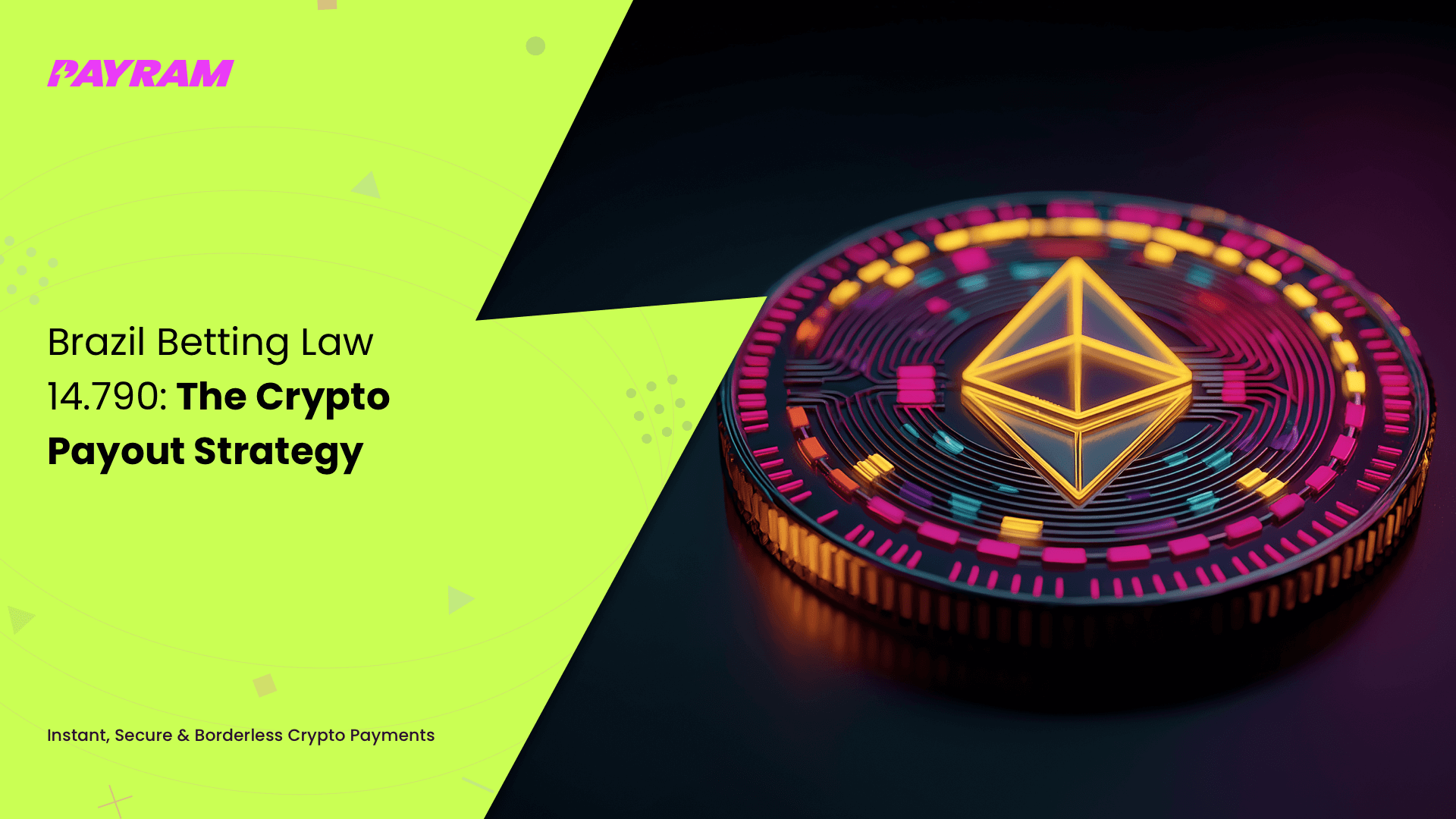
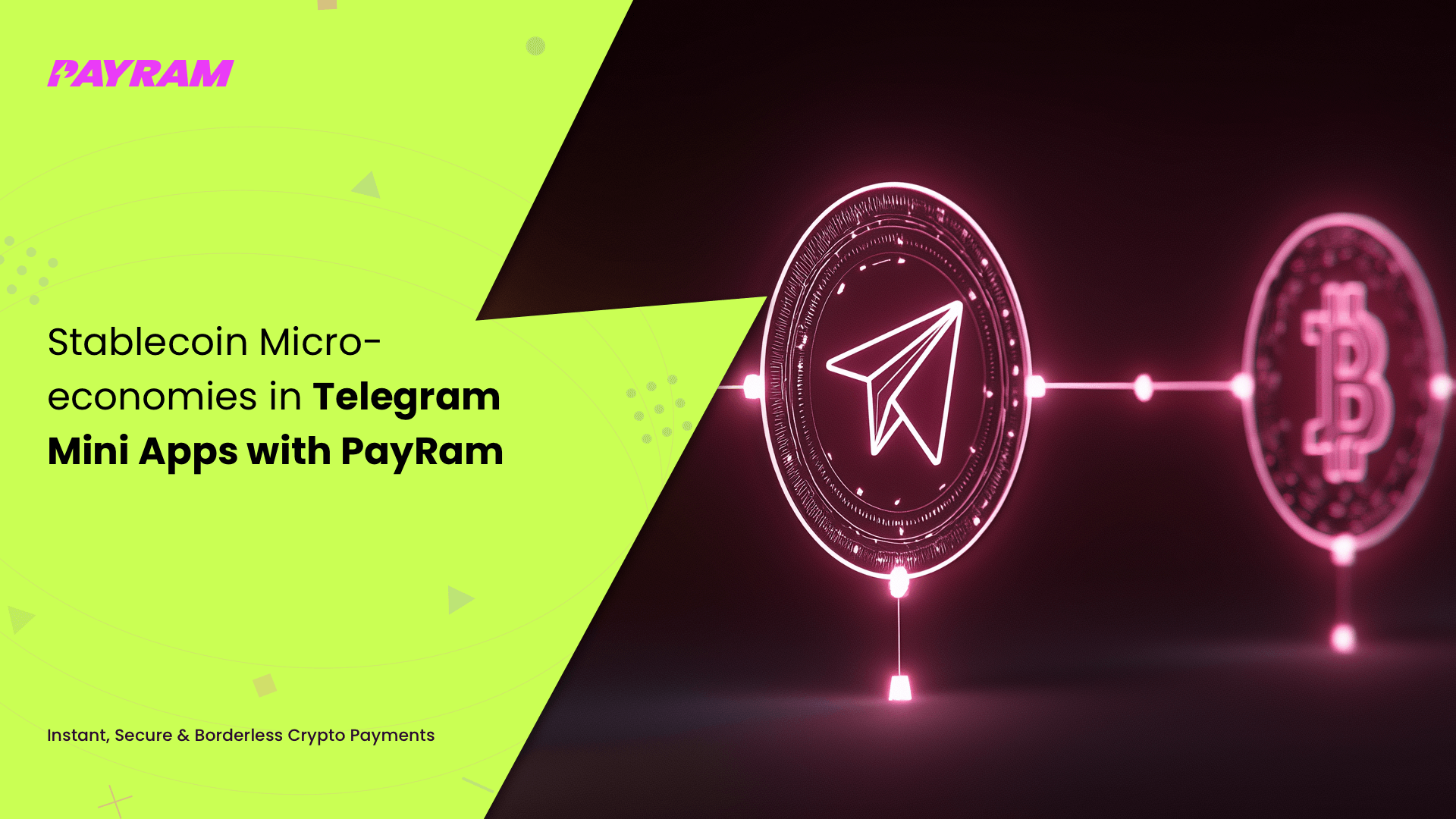
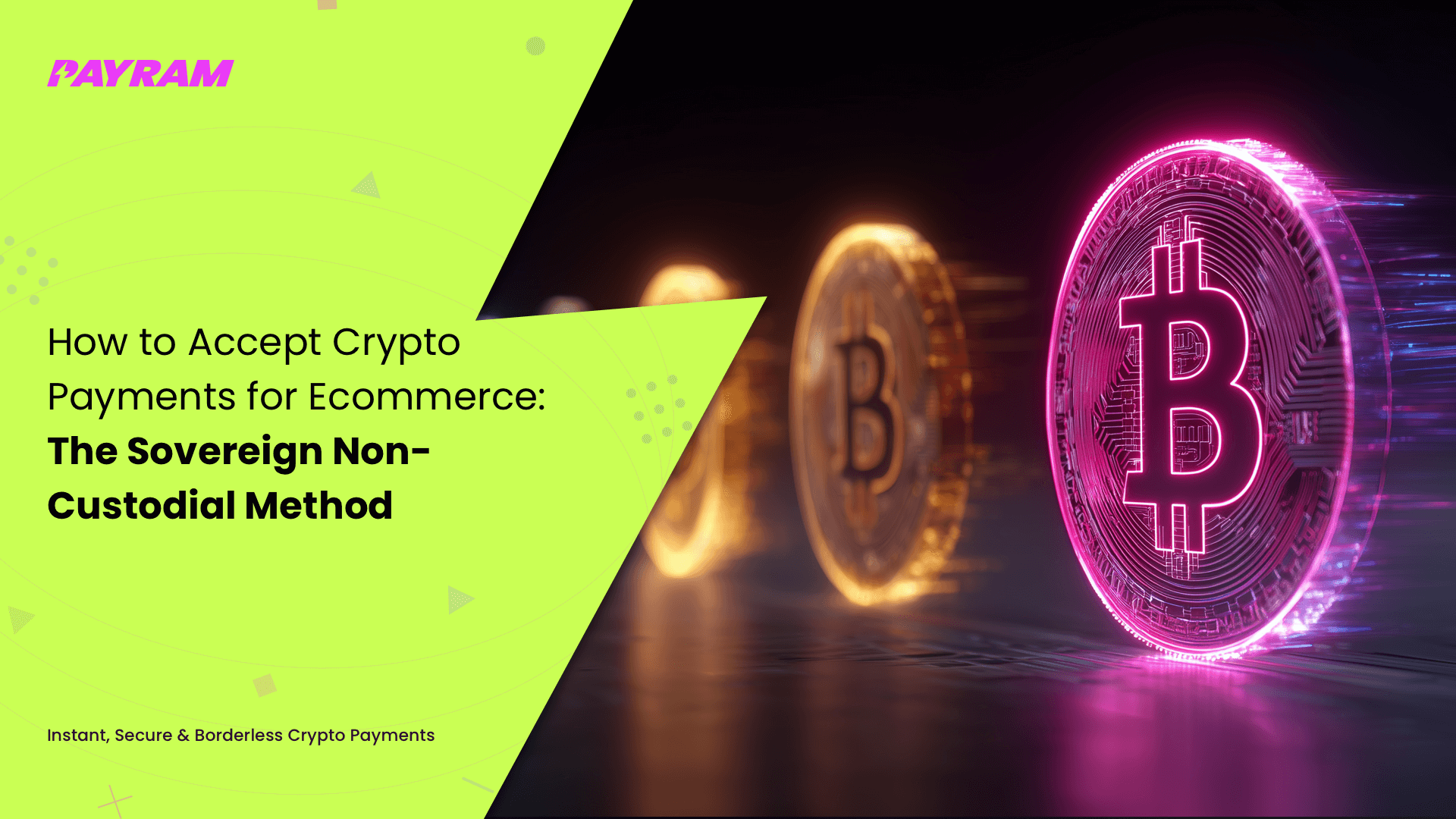

.svg)